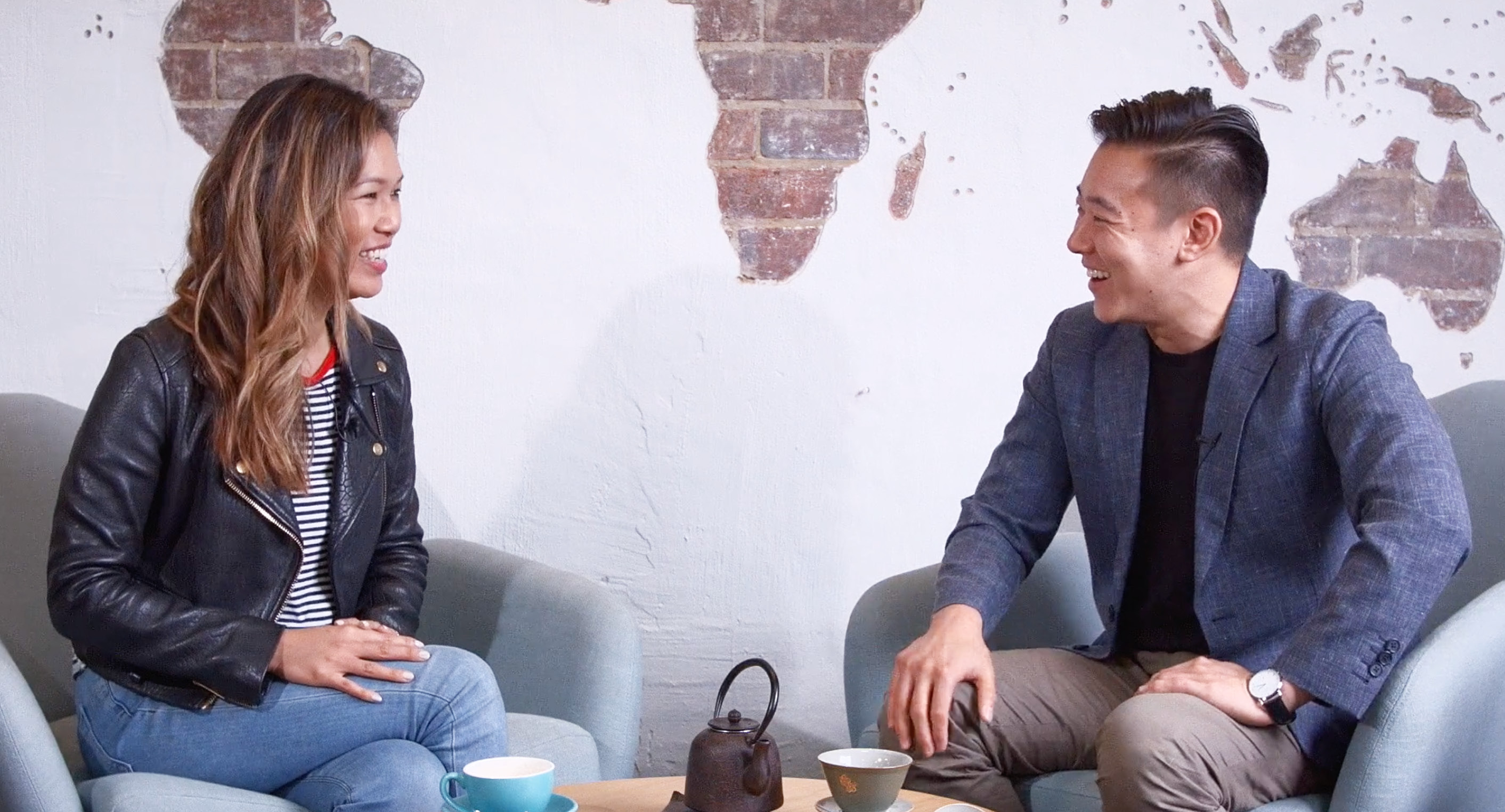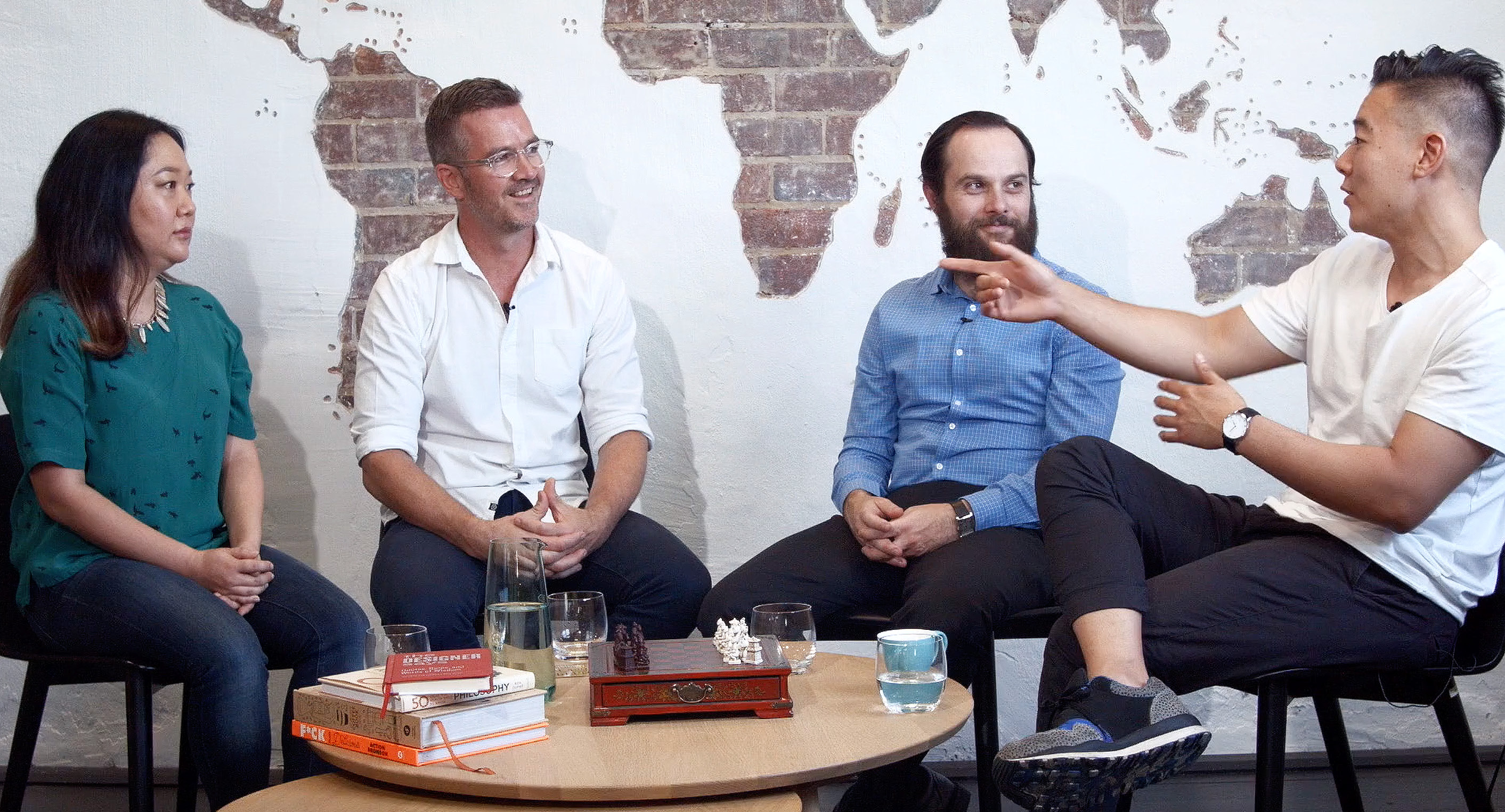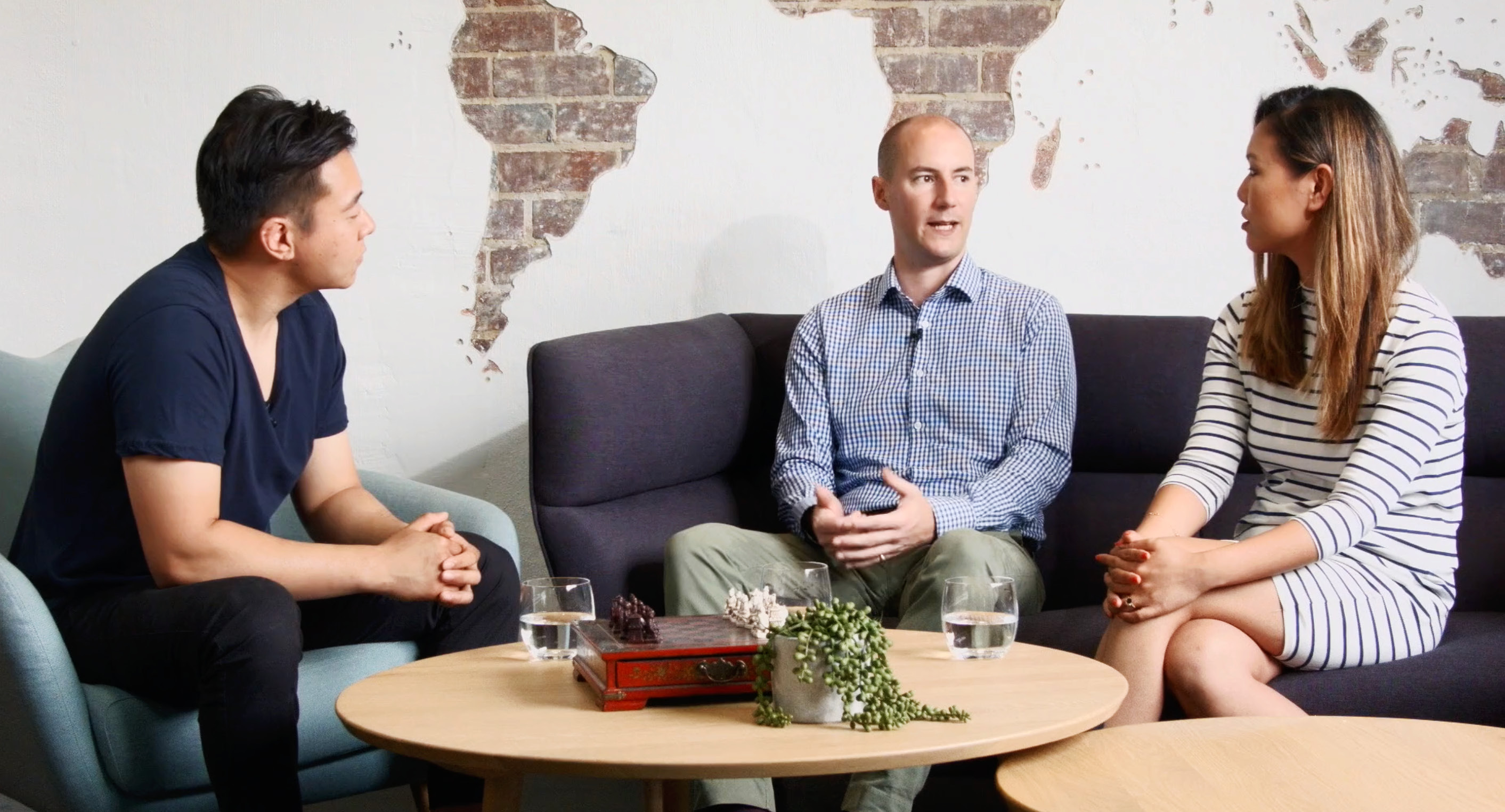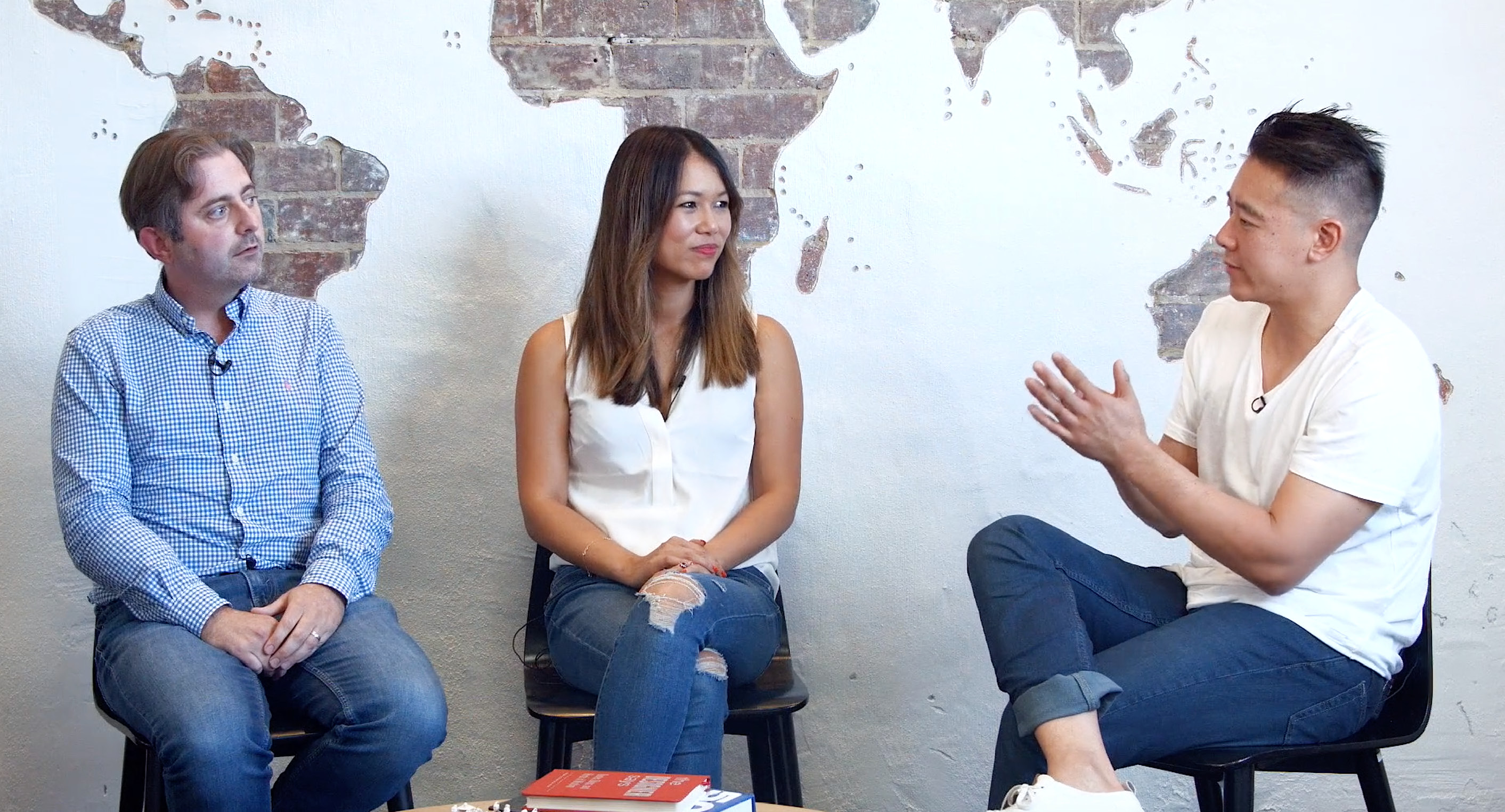Episode 1 - The Purpose of Work

TONY: Can you tell us a bit about yourself and your work Ruby?
RUBY: I had years and years of corporate experience and I got to that purpose point, where I was like – why am I doing this? Why am I recruiting these roles constantly for businesses that I only kind of believe in?
Hence, I launched my business and now I get to work with individuals, from a career point of view, but I also get to pair up with start-up founders to help them build their tribes. I love it. Why do you come to work each day?
TONY: For me, personally, I spent so many years going to work because it was ‘the thing to do’. I finished university and my parents wanted me to get a job and ‘climb that ladder’. I spent about 10 years trying to find that purpose. I went to different organisations, tried different roles, and travelled the world and thought maybe if I went to a different location it would give me more sense of purpose. I couldn’t figure it out. Whereas now, it’s the reason why I go to work.
RUBY: That really resonates with me. I’ve really changed the way I work in the last 18 months. I’ve moved away from the traditional employment model into employing myself and finding opportunities for myself.
Work for me is really an extension of my passion and what I get energy from each day. My parents told me ‘working is a way to have nice things and security’. But, as we know in this day and age, things have changed so much. You mentioned you were on a path of consciousness and purpose over these last 10 years. I don’t think I clued into that consciousness until the last three years or so. When was that moment you thought ‘why am I working?’
TONY: For me, there was a pivotal point, where I working crazy hours running a business and working full-time as well. I basically woke up, went to work, then worked on my other business, then went to sleep.
During that period, I put on a lot of weight on and lived a really unhealthy lifestyle. I decided I needed a change. I tried the gym, kickboxing, and then found jiu-jitsu and fell in love with it. I started to realise that what I was doing wasn’t giving me that same love or feeling. My coach, at the time, needed help training a few people. So I started training them the fundamentals of jiu-jitsu. I remember rushing after work in traffic to get to the other side of town to train these guys and I was so excited to go. One day I remember there was so much traffic and I was so frustrated with work, which pays me. Yet the volunteering, which was not giving me any monetary value, was what was giving me the most joy.
That was when I realised what I was doing was wrong. I thought how do I turn that feeling from one or two hours a day into every single hour of the working day? That’s why I went on a mission to live a life I wanted to live. Technology has changed the way we work. Obviously it is now enabling us to working remotely and be connected anywhere. How do you think this will shape how people work and their purpose?
RUBY: Coming from the “Old School” recruitment world, where the number of hours you were in the office was the indicator of how “hard” you were working. Since leaving that world behind, I’ve opened my mind to the possibilities and have lived out a personal dream of being a digital nomad, with the flexibility to move around and run my two businesses from Bali – which is now becoming a tech startup hub of the world! This is all down to technological advancements.
But let’s talk about it from a hiring perspective also. I have interviewed people from all over the world from my sofa in Melbourne. Even with the time differences, it’s such an easy thing to do. And whoever got the job, by the time they flew back to or relocated to Melbourne, they had a job to go into. They no longer physically have to be here. Thinking about how this affects our purpose of work, I really feel that technology enables us to not only work on what we love doing, but in environments and places that get the most out of us.
TONY: What do you see as the future of work as far as innovation and tech? How do you think it’s going to help us from a day-to-day point of view?
RUBY: It’s totally fascinating to me because as I have become immersed in this topic, I am hearing the suspicion there is out there – AI is going to “take over all of our jobs” and gives us a really miserable outlook on the employment market. But I personally take on a more positive view and can recognise the benefits. It’s two-fold. One, as a hirer, I can find a pre-qualified candidate in less than a minute, with software like Weploy. But it can also help with things like being able to match someone’s personality to the job or culture. Sure, there’s a lot of pre-work involved, but once that’s done there’s a lot of predictive work that can be done in the background.
Also, things like chatbots are really great, especially when running a lean hiring team. Future of work-wise, they enable me to step away from a lot of the administrative parts of my role and get to know more about the people we are looking for. We’re seeing the future unfolding now.
TONY: How do you find tools and technologies that can atomise parts of your role so you can focus on the high-value impact work and outsource the rest?
RUBY: I think strategy in its purest form will be in action. So many people that are in growth roles or strategy roles do get bogged down in the operational, so it’ll be interesting to see how that unfolds.
One question that flies around in my mind is that all of us started in recruitment in an admin function of some kind. Support roles are seen as that entry level step, if AI and automation are taking that away, then entry level becomes a lot more senior straight up.
If you’re in an agency role, you’ll be meeting and greeting clients, pretty much on the tools, straight away. You’re not just doing reference checks and things like that. If you’re in an internal HR position you’re not just scribing an internal incident report, you’re actually advising your internal stakeholders what to do next. I have a lot of people wanting to crack into recruitment, but in truth, I have a lot of tech startup HR solutions that are helping me with scheduling and all the other automation bits I need help with, so I’m not sure where that’s going to leave our junior talent. I’m really keeping an eye on that space.
TONY: This is part of why we founded Weploy. I remember when I was a candidate, applying for jobs, and trying to find my purpose. ‘What is your purpose?’ ‘How does this fit into it?’ Those were the questions that were never asked by recruiters. It was always, ‘What’s your salary expectation?’ ‘What do you want to do?’ So when I got into recruitment, I was like, ‘Great, I get to work with people and shape their career’.
What I soon found out was 80 per cent of my role was just calling candidates and clients. And every day, there were more candidates and clients that I couldn’t help. For us, it was if we can automate that process out through a piece of technology, we are not only able to provide more value as recruiters, we are able to outsource something and disrupt something that has been untouched for quite some time. Then help people ‘unleash their talent’ and help them find their purpose. One of our motto’s here [at Weploy] is ‘work to live, not live to work’. How do you feel the old recruitment model needs to change?
RUBY: I think in this conversation today - learning about the future of work, how we are applying change here and now, and also talking about all the innovation and HR tech out there that helps us drive towards our purpose is just so cool. We are forcing the question of What the Purpose of work is out into the open and the businesses that we have both started feed into this.
I just can’t wait to see what the next year has to bring because things are moving at an exponential rate. If we sit down and have this same conversation in a years’ time, I bet you it will be totally different.
I’m also left with a challenging thought about how to support the junior talent in my field, if we’re taking away a lot of their roles and automating – what can we do to help sculpt and continue their education. There’s a lot more thinking to do around this challenge.
Learn more about how Weploy work with clients and candidates and why we’re the part of the new school of recruitment.

TONY: We’ve grown our team substantially at Weploy, from three to 25, and culture is starting to become a big topic. As the senior leadership team, we are trying to figure out what kind of culture we want. Can we influence that? Or is that organic? I’d love to know, what does culture mean to you?

TONY: Can you tell us a bit about yourself, your employer branding business Digital Affair, and how you got where you are today Tim?
TIM: Part of it is timing. Employer branding has become extremely popular and organisations have started to understand how important it is, both to engage their people but also to connect with customers. It’s not just isolated to the employer space. Employer branding can have a big impact on consumer brands too.

TONY: What does the future of work mean to you?
RUBY: The future of work basically comes down to freedom of choice and flexibility. It’s actually this whole new unlocked generation where people should feel free to set up their working lives to suit them. I think it rolls into the gig economy, being able to represent different employer brands, and it being actually quite normal. It gives us, as individuals, freedom of choice in how we want to work and who we want to work for.
Streamline your hiring
Business support staff with no hidden fees. Start hiring anytime.